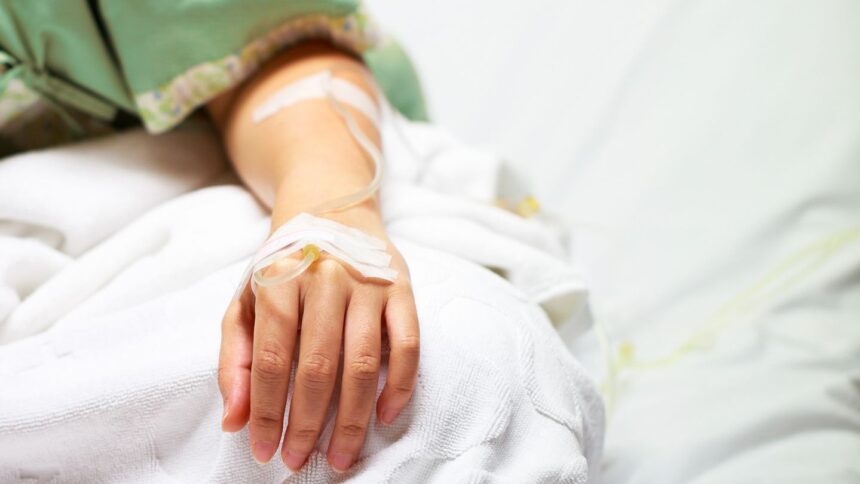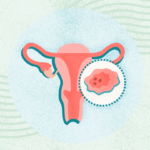Fever, nausea, cramping, and diarrhea — if in case you have ulcerative colitis, you in all probability know that these signs sign a flare . However typically, there’s one other offender at work that may set off those self same signs: a Clostridioides difficile ( aka C. diff) an infection . C. diff is a extremely contagious bacterium that infects the big gut and causes irritation within the colon. Individuals with inflammatory bowel illness (IBD) are notably vulnerable to the an infection. Analysis printed within the journal Gastroenterology discovered that individuals with IBD are practically 5 instances as doubtless as folks with out IBD to develop C. diff . “The connection between C. diff and IBD isn’t nicely understood, however what some analysis is beginning to uncover is that irritation current within the intestine can probably … create a extra supportive surroundings for C. diff to thrive,” says Megan Hilbert , a registered dietitian with Prime Vitamin Teaching in Madison, Wisconsin. Not like different bacterial infections that have an effect on the big gut, C. diff could cause critical problems, particularly for folks with ulcerative colitis. Understanding Your Danger of C. diff C. diff (previously often known as Clostridium difficile ) is a bacterium that’s current in folks’s intestines and may unfold by way of the stool, comparable to when somebody doesn’t wash their palms after utilizing the lavatory. When you ingest this bacterium by mouth, the spores are launched into your physique, inflicting irritation within the cells lining the big gut. Not everyone seems to be conscious that they’re carrying C. diff , which causes them to unknowingly unfold the bacterium to others. In reality, for many individuals, the nice micro organism usually current within the intestine may also help maintain C. diff from spreading unchecked, based on Cleveland Clinic . The issue often comes after folks take a course of antibiotics , which kills off good micro organism and causes C. diff to unfold rapidly, inflicting irritation and different signs, explains Kelley Shackelford, MD , an inside medication specialist at Orlando Well being Doctor Associates in Florida. An estimated half million infections happen in the USA yearly, based on the Facilities for Illness Management and Prevention (CDC) . Having IBD is one threat issue. Others embody being 65 or older, having a weakened immune system (which may happen in people who find themselves taking immunosuppressive medicine), and having beforehand had a C. diff an infection. One in 6 individuals who’ve had C. diff will get it once more within the following two to eight weeks, says the CDC. What are the signs of C. diff ? The signs of a C. diff an infection can mimic these of a flare. In accordance with the CDC, they will embody: Watery diarrhea Blood within the stool Stomach ache and swelling Fever Nausea Lack of urge for food What to do for those who suppose you’ve a C. diff an infection Anytime you’re experiencing “ signs of watery diarrhea, belly ache, or nausea, seek the advice of your physician instantly,” says Dr. Shackelford. Usually, docs will need to take a stool pattern to be sure you have C. diff somewhat than a flare. When you take a look at optimistic for C diff. , your therapy will depend upon the severity of the an infection. Your physician will almost certainly prescribe you an antibiotic to take at dwelling that may kill C. diff micro organism particularly. Different instances of C. diff require extra critical therapy. “In case you have extreme signs, comparable to indicators of dehydration or fever, I like to recommend going to the hospital to be monitored intently with antibiotics and IV fluids,” says Shackelford. When you require hospitalization, your docs will use procedures that may assist restrict the unfold of the micro organism (comparable to carrying gloves or supplying you with a single room), in addition to offer you IV hydration and electrolyte alternative. Extreme instances could require surgical procedure, which entails eradicating a big a part of the colon and performing an ileostomy, says Shackelford. Individuals who have recurring C. diff could also be candidates for fecal transplantation , during which stool from a wholesome donor is launched into the GI tract (often through a colonoscopy), the place it’ll assist restore wholesome micro organism to the intestine, based on Johns Hopkins Medication. When you suppose you will have a C. diff an infection, don’t hesitate to contact your physician, even for those who’re uncertain what’s inflicting your signs. A easy stool take a look at can clear up the confusion and level you towards the proper therapy.












